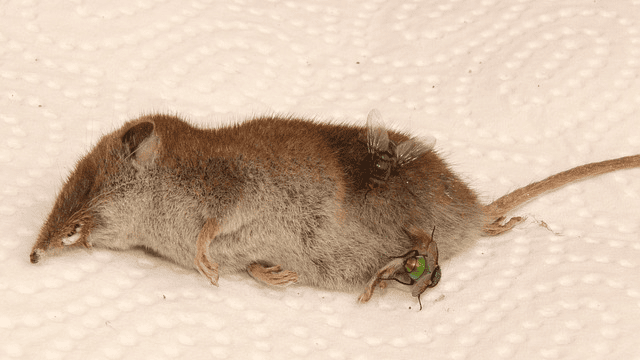Some of us may assume that since the animal is dead, it will then be easy to remove. However, this is not the usual scenario. There are many difficulties associated with removing a dead animal. You may not be able to definitely locate the animal. You may know that it is there because the smell has permeated your house or yard, but you may not be able to see it.
Then once you have located the animal, there are many other factors at play. There may be diseases that can transfer from the animal to us or our pets, and we will need to know how to protect us and them from catching these diseases. After the animal is removed, you may need to sanitize and clean the area to further stop the spread of diseases and parasites. There are many unknowns associated with removing dead animals, which can make it even more difficult than removing a live animal.
Staying safe during the removal process
There are many dangers associated with removing dead animals that you may never even consider. It is definitely an unsanitary and dirty job, but it is necessary for us to keep our households safe and pest free. It does take someone special to complete it, and you should never attempt it on your own.
Some dead animals can even wind up in the craziest of places, and sometimes these places can be cramped and hard to maneuver in. It may seem as if only a contortionist could truly get in there and effectively remove these animals, but luckily, a prepared wildlife removal team can get in there and remove this pest for you.
You should also take notice that they have the equipment necessary to keep them safe. They will wear gloves, a protective suit and a facial mask to ensure that we are taking all the necessary precautions while handling these dead animals.
Diseases and parasites
You never know what type of diseases a dead animal can spread to you, your family or your pets. You may believe that just because it is dead then it is safe and can not spread diseases to you. However, this assumption would be dead wrong. In some ways a dead animal is more contagious than a live one.
Bacteria will start to grow on the carcass and can spread to humans. Many of these bacteria can make us sick and even be fatal. Their carcasses can also spread viruses, even after death, and then there are parasites to consider. Many animals will be infested with fleas, ticks and mites, and once their host is dead, they will be looking for a new host to attach itself to.
It could be you, your family or your pets, but they will move on to the next available food source. These parasites, viruses and bacteria are all perfect reasons for you to avoid any contact with the carcass, get it out of your home or yard as soon as possible and ensure that the necessary steps are taken to clean and sanitize any infected areas.
There is no telling what type of microscopic germs may be lurking. You need to call in a professional that knows what they are doing. The safety of your family is your number one concern, and the only way to ensure their safety is by seeking help from a reliable wildlife removal service.
